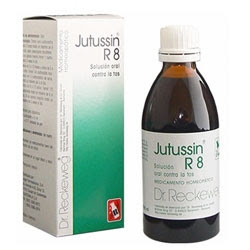Treating Cough with Homeopathy: A Natural Approach to Relief
Introduction:
Coughing is a common symptom caused by a variety of factors such as allergies, infections, and irritants. While many people seek relief from over-the-counter cough medications, these medications can have side effects and are not always effective. Homeopathy, on the other hand, provides a natural approach to cough treatment that can help relieve symptoms while also promoting overall health.
What is Homeopathy?
Homeopathy is a natural medicine system that has been practiced for more than 200 years. The method is based on the principle of "like cures like," which states that a substance that can cause symptoms in a healthy person can be used to treat those same symptoms in a sick person in diluted form. Homeopathic remedies are made from natural substances such as plants and minerals, and they are highly tailored to each individual's symptoms and constitution.
Treating Cough with Homeopathy:
The key to treating cough with homeopathy is determining the underlying cause of the symptom. Because homeopathic remedies are highly individualized, a practitioner will work to identify the specific symptoms and factors causing the cough.
Some of the most popular homeopathic cough remedies include:
Drosera: This remedy is often used for a dry, tickling cough that is worse at night and can be accompanied by hoarseness or soreness in the chest.
Bryonia: When a cough is accompanied by a dry, painful throat and aching chest, Bryonia may be a helpful remedy.
Pulsatilla: For a cough that is worse in a warm room or after eating, and is accompanied by thick, yellow or green mucus, Pulsatilla may be recommended.
Spongia: This remedy is often used for a harsh, dry cough that is accompanied by a feeling of tightness or constriction in the chest.
Phosphorus: When a cough is accompanied by a hoarse voice, and there is a tickling sensation in the throat that leads to coughing, Phosphorus may be helpful.
It's important to remember that homeopathy is not a one-size-fits-all approach, and the remedies used will differ depending on each individual's symptoms and constitution. Working with a qualified homeopath or healthcare professional is also recommended to ensure that the remedies are used safely and effectively.
It's important to note that homeopathic remedies are chosen based on the individual's symptoms and constitution. Therefore, it's best to work with a qualified homeopath or healthcare professional to determine the most appropriate remedies for your specific case of cough. However, here are 20 common homeopathic remedies for cough:
Aconite: This remedy is often used in the early stages of a cough that comes on suddenly, especially after exposure to cold, dry winds. The cough may be dry, hoarse, and painful.
Bryonia: This remedy is often used for a dry, painful cough that worsens with movement. The cough may cause a headache or chest pain, and the person may feel irritable and thirsty.
Belladonna: This remedy is often used for a sudden, violent cough with a high fever. The cough may be dry and barking, and the person may feel restless and flushed.
Drosera: This remedy is often used for a spasmodic cough that is worse at night. The cough may be dry or moist, and the person may feel a tickle or itch in the throat.
Ferrum phosphoricum: This remedy is often used for a cough with a low-grade fever and a mild sore throat. The cough may be dry or loose, and the person may feel weak and tired.
Hepar sulphuris: This remedy is often used for a cough that is worse in cold air or when exposed to cold drafts. The cough may be dry or loose, and the person may feel irritable and sensitive to touch.
Ipecacuanha: This remedy is often used for a cough with a lot of mucus that is difficult to expectorate. The cough may be spasmodic and suffocating, and the person may feel nauseous or vomit.
Kali bichromicum: This remedy is often used for a cough with thick, stringy mucus that is difficult to cough up. The cough may be deep and rattling, and the person may feel better after expectorating.
Natrum sulphuricum: This remedy is often used for a cough that is worse in damp weather or after exposure to mold. The cough may be loose or dry, and the person may feel depressed or irritable.
Nux vomica: This remedy is often used for a cough that is worse in the morning and after eating. The cough may be dry and hacking, and the person may feel irritable and constipated.
Phosphorus: This remedy is often used for a dry, tickling cough that is worse in cold air or after talking. The cough may be accompanied by hoarseness or a sore throat, and the person may feel thirsty and crave cold drinks.
Pulsatilla: This remedy is often used for a cough that is worse at night and in warm, stuffy rooms. The cough may be loose or dry, and the person may feel weepy and emotionally sensitive.
Rumex crispus: This remedy is often used for a dry, tickling cough that is worse when the person takes a deep breath. The cough may be accompanied by a sore throat or a feeling of dryness in the throat.
Spongia tosta: This remedy is often used for a dry, barking cough that sounds like a saw being driven through a board. The cough may be worse at night and when the person is lying down.
Sticta pulmonaria: This remedy is often used for a dry, hacking cough that is worse in cold, dry weather. The cough may be accompanied by a headache or a feeling of congestion in the head.
Sulphur: This remedy is often used for a chronic cough that is worse in the morning and after eating. The cough may be dry or loose, and the person may feel hot and restless.
Antimonium tartaricum: This remedy is often used for a cough with a lot of mucus that is difficult to expectorate. The cough may be rattling and accompanied by shortness of breath or wheezing.
Cuprum metallicum: This remedy is often used for a spasmodic cough that is worse at night and when lying down. The cough may be dry or accompanied by thick, green mucus.
Kali carbonicum: This remedy is often used for a dry, hacking cough that is worse in the evening and at night. The cough may be accompanied by a headache or a feeling of weakness in the chest.
Sambucus nigra: This remedy is often used for a cough with difficulty breathing, especially in infants and young children. The cough may be dry or accompanied by thick, rattling mucus, and the person may feel restless and anxious.
Again, it's important to work with a qualified homeopath or healthcare professional to determine the most appropriate remedies for your specific case of cough. Homeopathy is a comprehensive approach to healthcare in which remedies are chosen based on the individual's symptoms and overall constitution.
A list of some of the most commonly used homeopathic combination medicines for cough relief. Please keep in mind that before using any homeopathic remedies, you should consult with a qualified homeopathic practitioner.
Tussikind Syrup
Koflet Syrup
SBL Tussistin Plus Syrup
Reckeweg R8 Cough Syrup
Allen's Kof Aid Plus Syrup
Bakson Kof Aid Plus Syrup (450ml). For Dry, Productive, Allergic, Wheezing Cough, Throat Pain, Dryness. Brand: Bakson's
Schwabe Alpha Coff Syrup
Schwabe Alpha Coff syrup is formulated for the treatment of bronchial infection.Alpha Coff Syrup also cures chest congestion caused by the accumulation of mucus in the lungs. It is also an effective remedy for the cure of prolonged dry cough in old aged.
Dr. Reckeweg R 48 Pulmonary Respiratory Drops
Indications: Pulmonary weakness and first appearance of tuberculous diseases. Complementary remedy in bronchial asthma, chronic pulmonary catarrh, cough resulting from excessive smoking. Complementary or alternative remedy in all catarrhal affections of the upper air passages. Weakness and pains between the omoplates, weariness, nocturnal perspiration.
Bakson's Kof Aid Plus Syrup
It provides quick relief from cough associated with various disorders without any side-effects. For dry, productive and allergic cough with wheezing. It does not cause any drowsiness and safe for children.
Wheezal Kofeez Syrup
For Cough Cold, Chest Congestion & Pain, Bronchitis, Asthma, Wheezing.
Here are more remidies in combination famous for cough
B Jain Kofeez Cough Syrup
Bioforce Bronchosan Syrup
Haslab HC 14 Bronchitis Drops
Dr. Reckeweg R9 Cough Syrup
Allen's Koffex Cough Syrup
Bakson's Bronchodrop Syrup
Adel 83 Bronchi-Pertu Drops
SBL Stodal Cough Syrup
Allen's Jexpect Cough Syrup
Benefits of Homeopathic Treatment for Cough:
FAQs:
Q: Can homeopathy be used to treat a persistent cough?
A:Yes, homeopathy can be effective in treating chronic cough, especially when the underlying cause has been identified.
Q: How long does it take to see results from homeopathic treatment for cough?
A: The answer to this question depends on the person and the severity of the cough. Some people may experience relief within hours or days, while others may take longer.
Q: Are homeopathic remedies safe for children?
A: Yes, homeopathic remedies are safe for children and can be used to treat coughs and other symptoms in a gentle and effective manner.
Q: Can homeopathic treatment be used alongside conventional medications?
A: Yes, homeopathy can be used safely in conjunction with conventional medications. However, working with a qualified healthcare professional is essential to ensure that the remedies are used safely and effectively.
Conclusion:
If you're tired of relying on traditional cough remedies, which can have unfavorable side effects, homeopathy might be worth considering. This natural cough treatment can relieve symptoms and improve overall health without the risks associated with traditional medications. However, it is critical to consult with a qualified homeopath or healthcare professional to ensure that the remedies used are appropriate for your specific symptoms and constitution.



